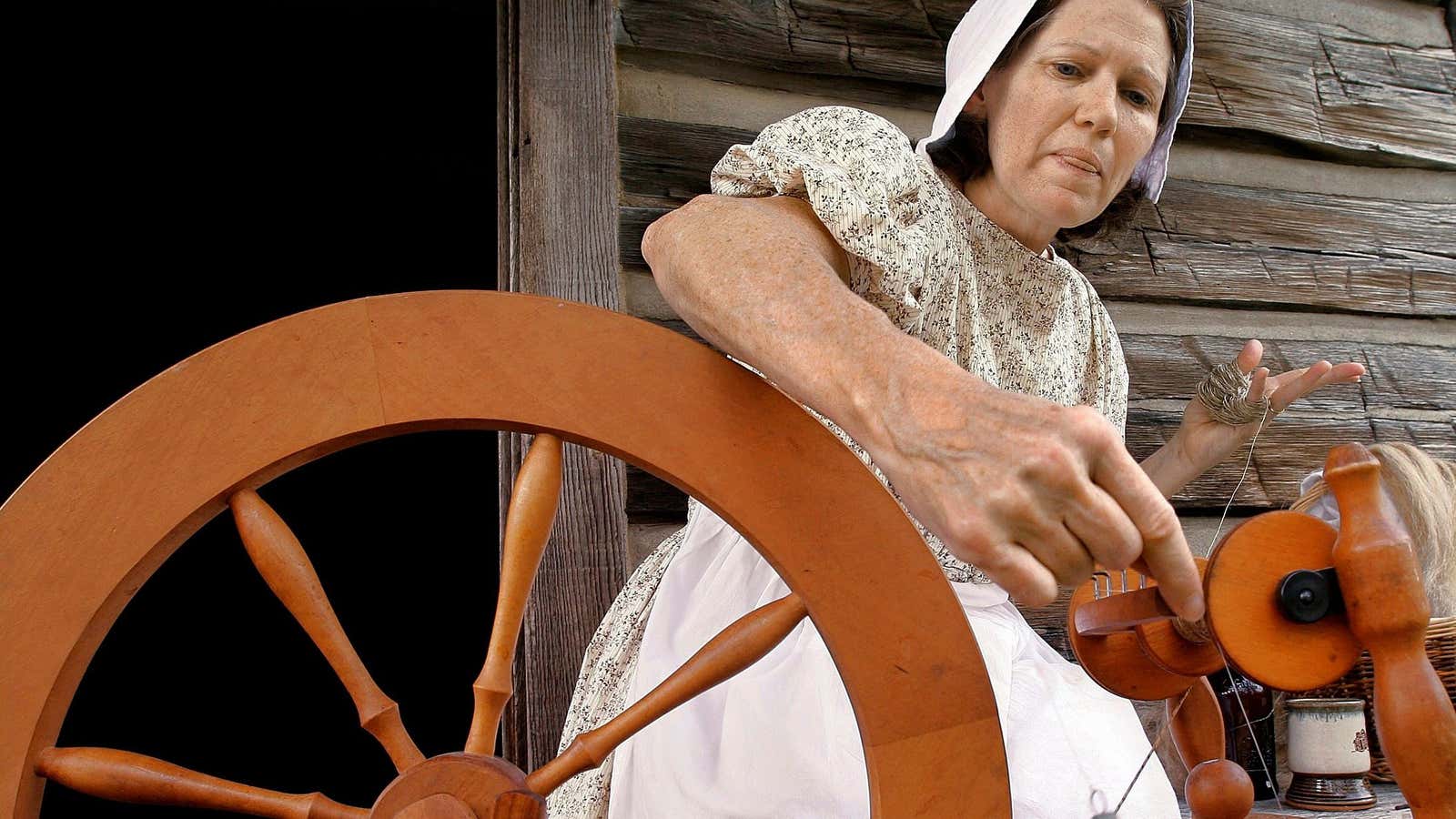Every year, some 2,000 people fill the ballroom of a Los Angeles DoubleTree for the annual meeting of a publishing and technology called the Daily Journal. They come to hear company chairman Charlie Munger, best known for working alongside Warren Buffett for decades at Berkshire Hathaway, hold court for two hours. People ask questions, and if he’s interested Munger answers them, but mostly it’s a chance for a 95-year-old billionaire to talk about whatever he wants to in front of a crowd eager to listen.
At last month’s meeting, Munger was asked about his reading recommendations, and segued from that question to a discussion about Abraham Lincoln, one of the historical figures he said he admires most. Then he mentioned someone else he might admire even more.
“You know who deserves the credit for Abraham Lincoln, and never gets it?” Munger asked. “His stepmother.”
“Abraham Lincoln was the child of two illiterates. But the stepmother . . . she took a shine to Lincoln and saw he was bookish and she helped him all the way along,” he continued. “I’m going to donate a picture of that stepmother eventually, to a particular place, because I admire what that stepmother accomplished in life. Imagine being responsible more than any other person for the life of Abraham Lincoln.”
The woman Munger spoke of was Sarah Bush Johnston Lincoln. She was a widow with three children when she married Lincoln’s father, Thomas, in 1819, the year after Lincoln’s mother died. The future president was 10 years old.
Munger’s appreciation of an impoverished Kentucky mother of six struck a remarkable note in a room of finance types whose questions revealed a deep admiration for both Munger’s storied business acumen and their own achievements. (One man used his turn at the microphone to tell Munger he had read the Stoics, then proceeded to name some of them for the benefit of the audience. Seneca—ever heard of him?)
Biographers have noted Munger’s “deep respect for authentic achievement,” as Alice Schroeder put it, as well as his resistance to counting strokes of luck as personal accomplishments. Munger and Buffett both are vocal about the fact that their success was accelerated by the serendipity of being born English-speaking, American, white males of middle-class households, at a time in the 20th century when many doors open to them were closed to others.
Sarah Bush Johnston Lincoln’s circumstances were quite different. Options for a woman managing three children and her late husband’s debts in early 19th-century Kentucky were limited. Thomas Lincoln’s offer of marriage in exchange for clearing her debts presented security for herself and her biological children. In return, she would maintain the Lincolns’ household and raise their blended family. This was the role available to her and she did it well—arguably, well enough to alter the course of American history.
“Sarah Bush Johnston was a bright spot in young Abraham Lincoln’s world,” Illinois state historian Samuel Wheeler told Quartz at Work. “She was a loving stepmother who understood her stepson’s desire to learn more about the world than traditional farm work could provide.”
Munger didn’t specify whether his gift would be a photograph (there are several copies circulating of the best-known photograph of Lincoln’s stepmother) or a commissioned portrait, nor what institution would receive it. He has been a frequent donor to schools he or his family has attended, including the University of Michigan, where he went to undergraduate classes, and Stanford University, his late wife’s alma mater.
Lincoln’s stepmother was among the people his law partner William Herndon interviewed in the years after the president’s assassination, a volume eventually published as the book Herndon’s Informants.
“When I first reachd the House of Mrs Lincoln . . . I did not Expect to get much out of her,” Herndon wrote of his first impressions upon reaching her Illinois home five months after her stepson’s assassination. “She seemed to old & feeble — : She asked me my name 2 or 3 times and where I lived as often.”
But when asked about her treasured stepson, her recall was immediate.
“I can say what scarcely one woman — a mother — can say in a thousand and it is this — Abe never gave me a cross word or look and never refused in fact, or Even in appearance, to do any thing I requested him. I never gave him a cross word in all my life,” she told Herndon. “His mind & mine — what little I had seemed to run together — move in the same channel.”
According to historians, Abraham Lincoln and his stepmother remained close until the end of his life.
